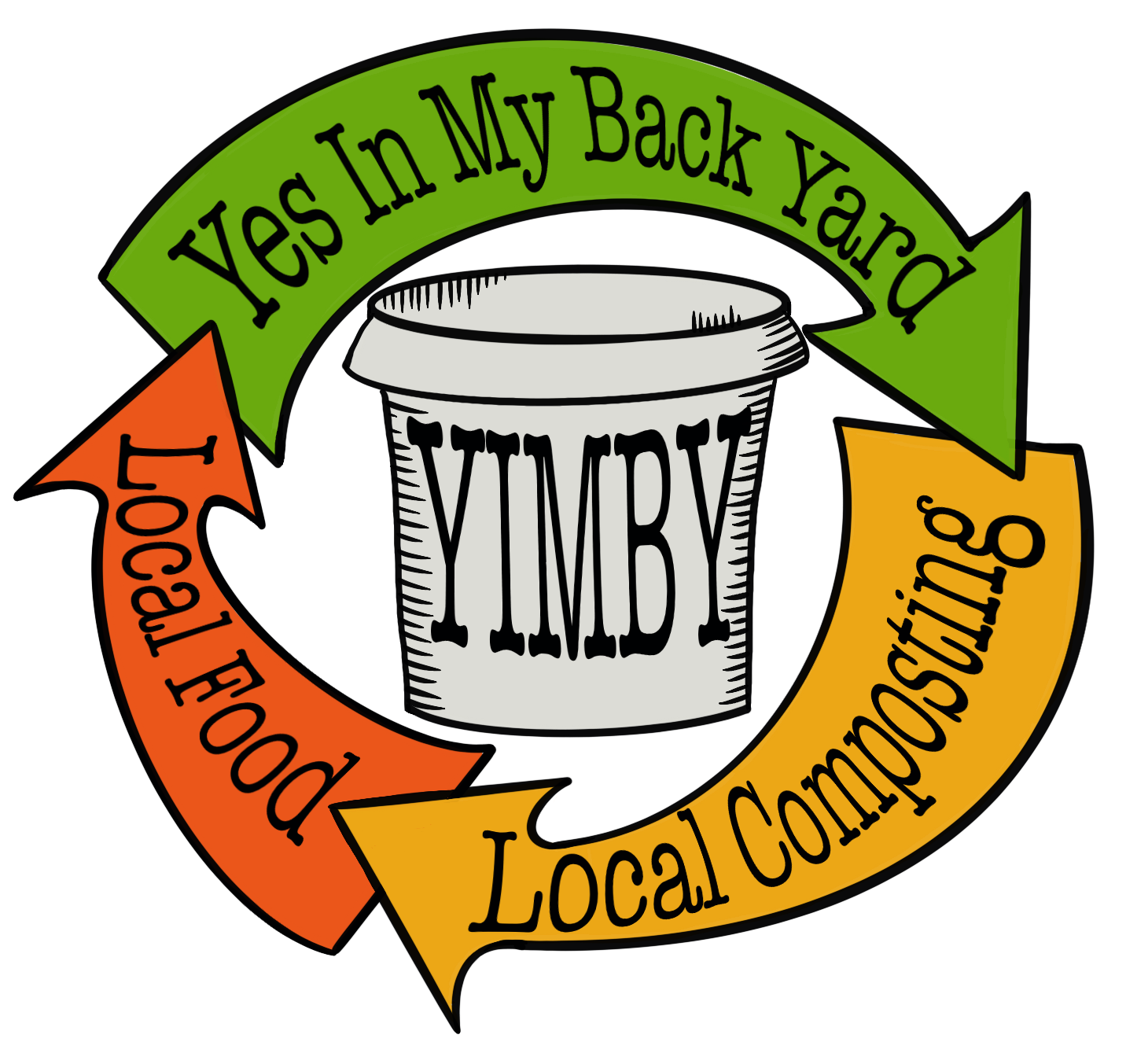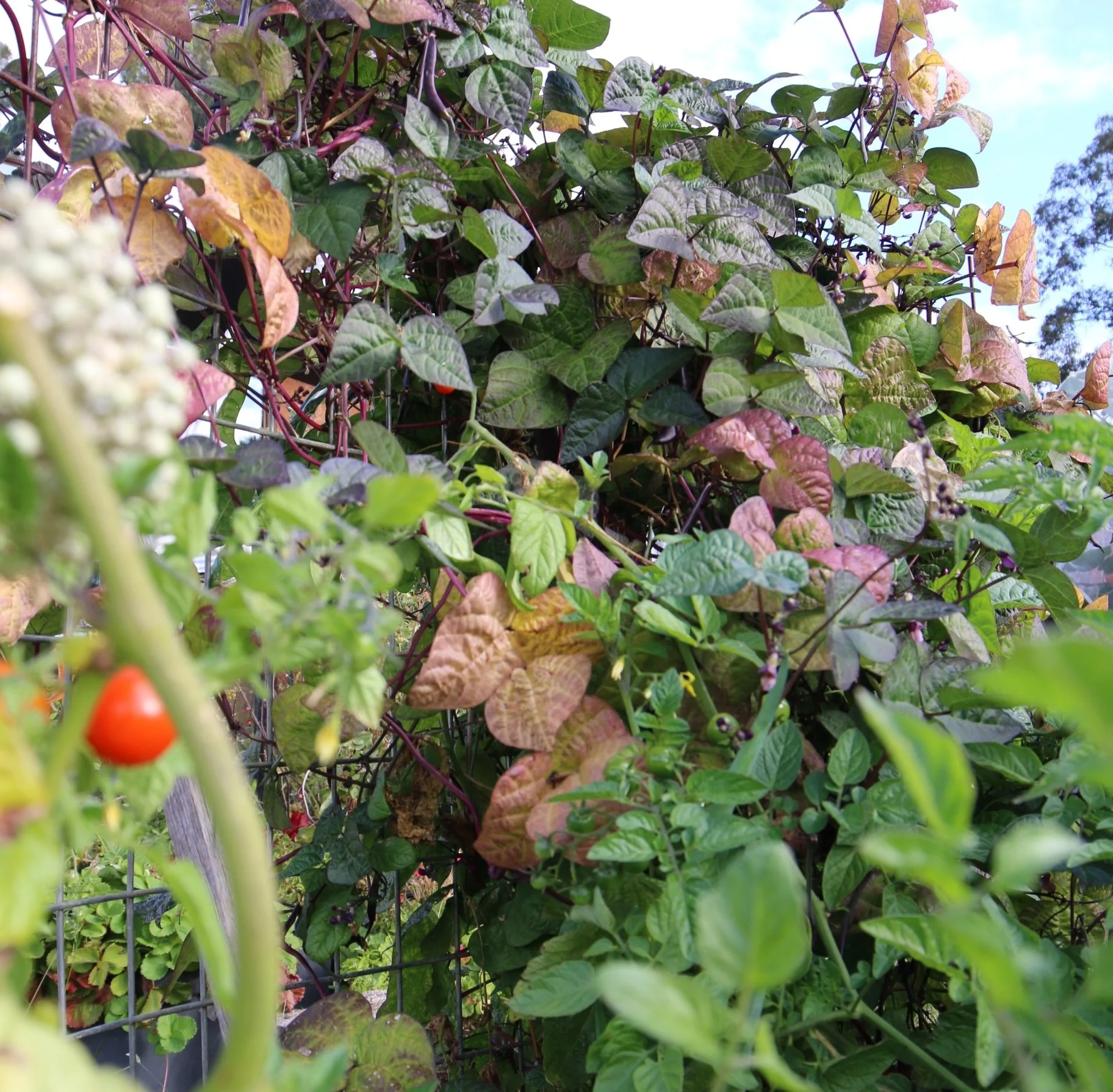Compost in our Autumn garden
Autumn in Central Victoria is pretty spectacular. As the rains bring a flush of green and the nights cool, our summer plantings, still productive, start to slow and our minds turn to the first big frost.
For many gardeners, Autumn brings the big peak of garden prunings; springy tomato, eggplant and capsicum stems, rambling pumpkin and zucchini vines, woody corn and sunflower stalks, tangles of bean and pea stems, seedy shoots of lettuce, rocket and basil, it can feel a little overwhelming.
Most garden prunings are just on the carbon-rich end of balanced, so, blended with kitchen scraps will compost wonderfully. When fresh, they are often wet enough to keep our piles’ moisture just right, but as they dry, or the more woody they are, the more water we will need to add as we layer them in our compost.
The best characteristic about these prunings is the texture and aeration they can add to a pile, but to get this benefit they need to be chopped up, 20cm minimum, but 10cm is even better. Left un-chopped they make the pile way too airy (and then too dry) and the long fibrous stems can bind up a pile so badly it’s difficult to turn.
Garden prunings are wonderful additions to our compost, but if we simply pile them up and leave them to decompose on their own, they will become a tangled mess and much of their benefit will be lost to our compost.
We covered techniques for chopping carbon-rich prunings in #23 “The Big Chop”, you can look that up on the YIMBY website.
Organisation is key for managing our Autumn bounty.
Mikaela Beckley has a rule that she won’t pull anything out of the garden if she does not also have the time to chop those prunings up, ready for adding to the compost, a good rule to garden by.
If you do have a big day pulling lots out of the garden all at once, I would recommend keeping different pruning types in separate piles to make the chopping up task easier when you do come to processing.
Prunings you plan to add to your compost over several months are best kept dry. Once wet, they will start to break-down, mat and become hard to use, so keep them under cover.
Happy Autumn composting!
AUTHOR: JOEL MEADOWS
Joel Meadows works with Yes In My Back Yard, (YIMBY), a community-scale composting initiative in Castlemaine and surrounds. Send questions or comments to hello@yimbycompost.com or to book in for a compost workshop.
This was first published in the Midland Express on the 16 April 2024

